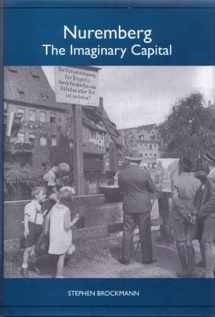
Nuremberg: The Imaginary Capital (Studies in German Literature Linguistics and Culture, 1)
Book details
Summary
Description
Nuremberg: The Imaginary Capital is a broad study of German cultural history since 1500, with particular emphasis on the period since 1800. It explores the ways in which Germans have imagined Nuremberg as a cultural and spiritual capital, focusing feelings of national identity and belonging on the city -- or on their image of it. Chapters focus on the city of Dürer and Sachs at the threshold of the modern era, the glory of which became the basis for all the other imaginary Nurembergs; the Romantic rediscovery of the city in the late 18th century and the institutionalization of Nuremberg discourse through the Germanic National Museum in the mid 19th; Wagner's Meistersinger von Nürnberg, the most famous artistic invocation of the Nuremberg myth; the Nazi use and misuse of the Nuremberg myth, along with Leni Riefenstahl's film Triumph des Willens, not only the best-known Nuremberg film but also the most significant documentary of Hitler's Third Reich; and finally the postwar development in which "Nuremberg" became the symbol of a new kind of international law and justice. Stephen Brockmann analyzes how the city came to be seen, in Germany and elsewhere, as representative of the national whole. He goes beyond the analysis of particular historical periods by showing how successive epochs and their images of Nuremberg built on those preceding them, thus viewing German cultural and intellectual history as an intelligible unity centered around fascination and veneration for a particular city. Stephen Brockmann is Professor of German at Carnegie Mellon University. He is the recipient of the 2007 DAAD (German Academic Exchange Service) Prize for Distinguished Scholarship in German and European Studies/Humanities.


We would LOVE it if you could help us and other readers by reviewing the book
Book review



